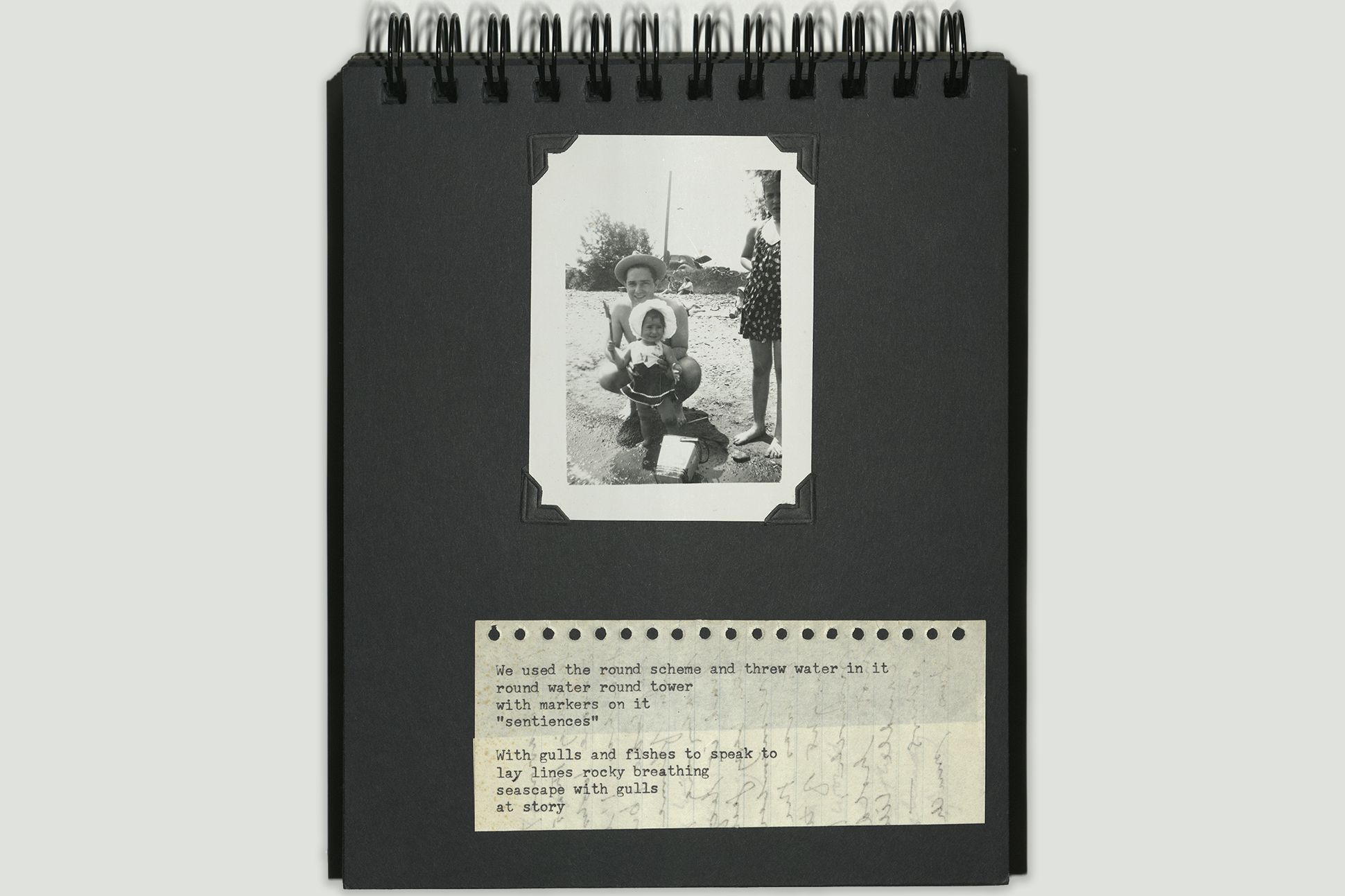Life-Works: A Norma Cole Folio
A Canadian poet and painter who has been a linchpin of the Bay Area arts scene for nearly 50 years.

Courtesy the Norma Cole Collection, 1987-2014, The Poetry Collection of the University Libraries, University at Buffalo, The State University of New York.
Norma Cole—poet, translator, visual artist, and curator—was born in Toronto on May 12, 1945. She studied at the University of Toronto, receiving a BA in Modern Languages and Literature (French and Italian) in 1967 and an MA in French Language and Literature in 1969. After graduating, she spent several years in a small French village in the foothills of the Alpes-Maritimes near Nice. In 1977, she moved to the San Francisco Bay Area, where she soon became involved with a circle of poets around Robert Duncan that included Michael Palmer, David Levi Strauss, Laura Moriarty, and Aaron Shurin. During return trips to France in the 1980s, she met the poets Claude Royet-Journoud and Emmanuel Hocquard, whose work was among the first she translated for English publication. Cole first published her own poetry in David Levi Strauss’s Acts 4, in the summer of 1985; her first book (Mace Hill Remap, issued by the press of poet Joseph Simas) and first appearance in an anthology (Leslie Scalapino’s O/One An Anthology) were released two years later. Since then, she has published more than 30 books and chapbooks while maintaining a vibrant practice in visual arts, collage, and installation.
The poems in this folio are selected from Cole’s most recent publication, Alibi Lullaby (Omnidawn, 2025), while the essays here explore her interdisciplinary work, with particular emphasis on aspects of her visual art as it intersects with poetry. Especially foregrounded is Cole’s rich history with the San Francisco Poetry scene, the New College of California, Kevin Killian’s Poets Theater, and other members of a diverse community of creative practitioners. The folio tells briefly a story of Cole’s centrality to West Coast artistic and poetic innovations since the 1980s, a story that continues in a collection of essays that I edited, That Tongue Be Time: Norma Cole and a Continuous Making, recently published by the University of New Mexico Press.
The essays in this folio give a sense of Norma Cole’s commitment to what Robert Duncan called a “grand collage,” or life-work, taking form in diverse conditions and materials that respond to the opposing forces of the world. Cole’s social encounters, creative expressions, and spiritual alignments in the continuous relations of art to lived experience and imagination are revealed as pathways for possible approaches to the corpse of the American democratic social experiment. The current state of politics and media reduces shared public understanding to fragmented modes of perception, opinion, hope, desire, refusal, and, at times, violence. Opposed to such confusions, and in search of radical and lyric clarity, Cole provides opportunities of realization at the level of the individual, and in connection to a larger cultural sphere where a public of the creative spirit is imminent. — Dale M. Smith, editor
Take a Look
Norma Cole
Night Market
Norma Cole
With a Line
Norma Cole
Like Any Body
Norma Cole
Tension
Norma Cole
Rainy Day
Norma Cole
The Matter
Norma Cole
And Nothing
Norma Cole
Namaste
Norma Cole
Last Chance
Norma Cole
Wherever
Norma Cole
Did You Ever See Such a Thing in Your Life?
Amy Trachtenberg
What Hands Can Do
Scott Hewicker
Outside, in the Theater
Roberto Bedoya


